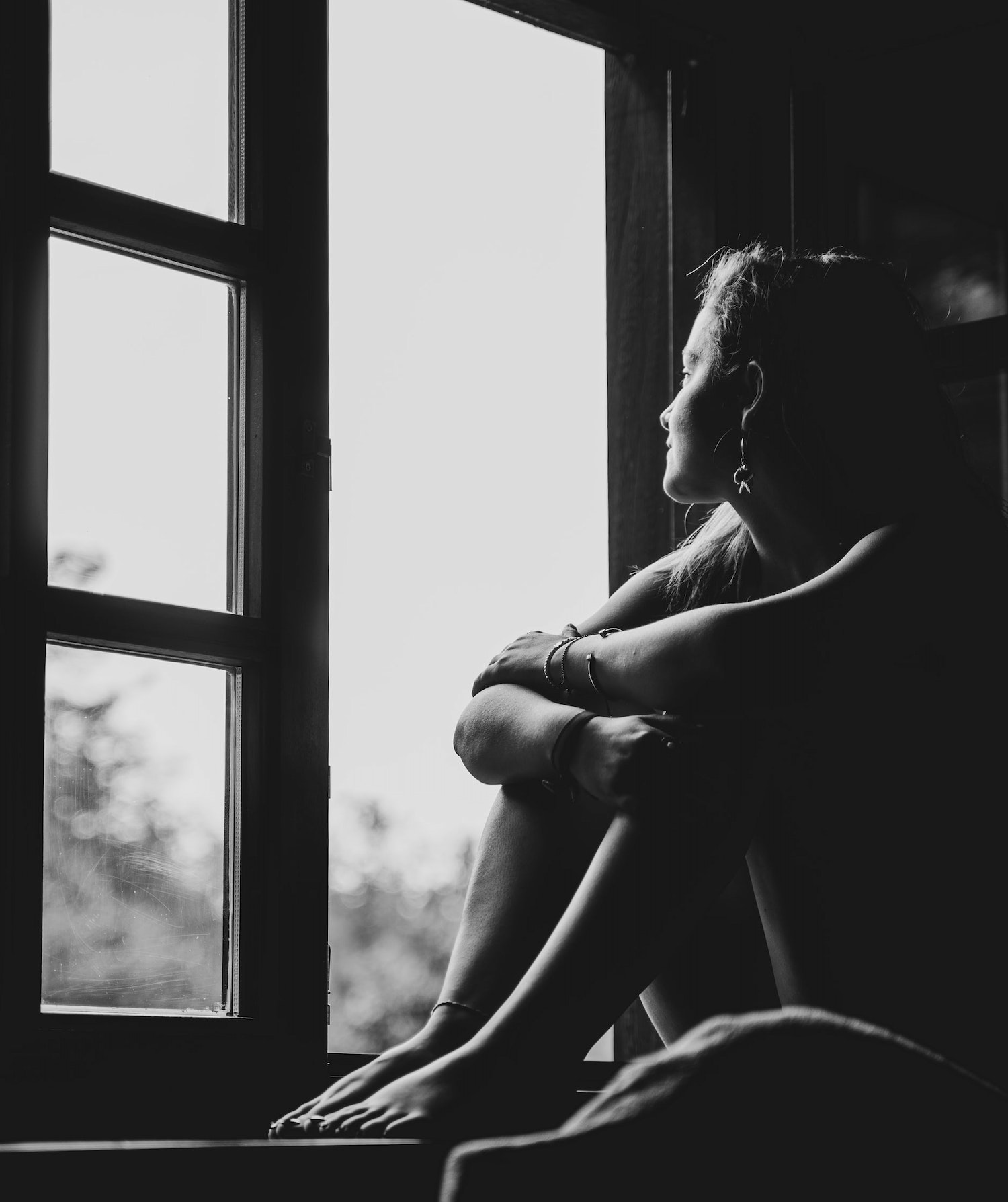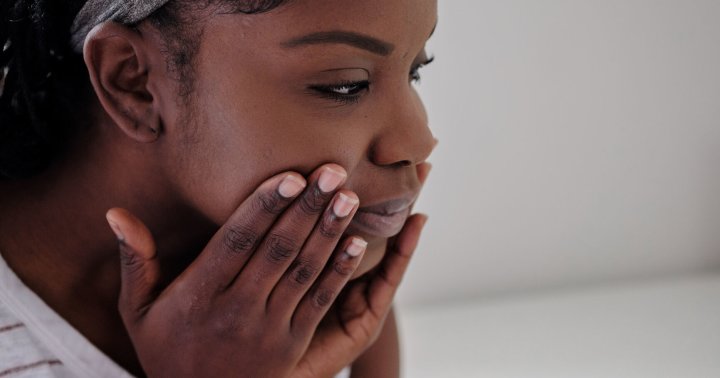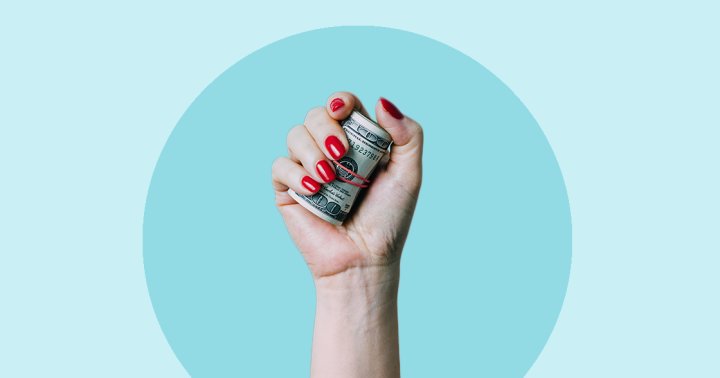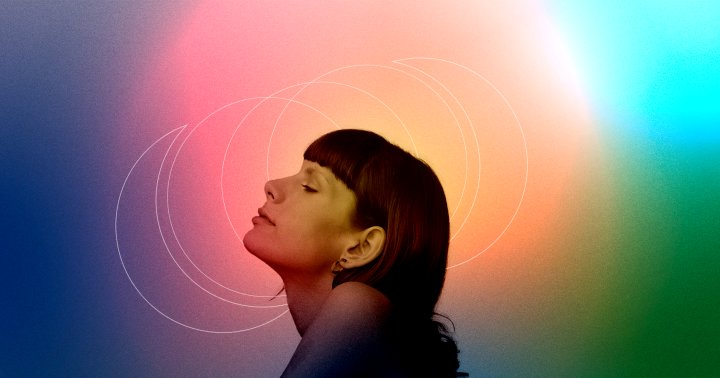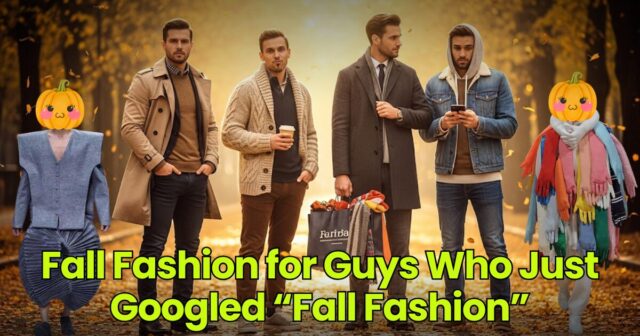Lessons from a (Mostly) Good Dog: #8, Be (Mostly) Good
A mischievous dog reminds us to recognize our own innate buddhanature. The post Lessons from a (Mostly) Good Dog: #8, Be (Mostly) Good first appeared on Tricycle: The Buddhist Review. The post Lessons from a (Mostly) Good Dog: #8,...
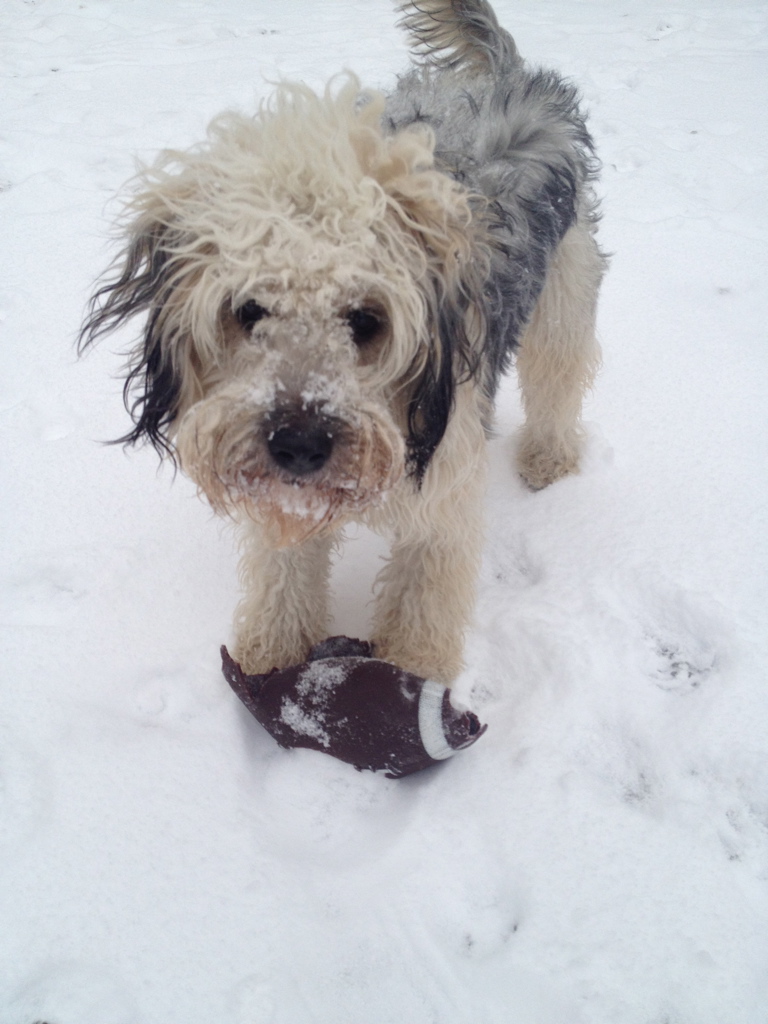
At night, when it’s time for my son, Ollie, to settle down, our mostly good dog Brooklyn helps lull him, finally, to sleep. She lies down next to him on his bed, and he reads books and eats Pirate’s Booty and feeds Brooklyn the occasional stray piece, which she crunches on contentedly. It is during moments like these that Ollie and I tell her, often in song, that she’s the best dog in the world . . . no, the universe . . . no, the multiverse. Yes, of all the dogs in every possible reality, she’s the best, paws down, and my son and I agree on this matter wholeheartedly.
“Daddy, why is Brooklyn so good?”
“I don’t know, Buddy. I think that’s just the way she is.”
“It’s not a disease, is it, Daddy?”
“No, Bud.”
We turn off the lights, and I give my son a little head-tickle, and soon enough he drifts off to sleep, his arm tossed over our dog, who is already snoring happily, her final duty of the day accomplished. I tiptoe out of the room, the carpeted floor creaking terrifyingly, and all is well, more or less, in the world.
Ollie’s question is a good one, though: What exactly is it about our dog that makes her so good? I ask her this sometimes, straight out: How’d you get to be so good, Brooklyn? I mean, just who do you think you are? It’s not fair to the rest of us—you’re making us look bad.
It is indeed hard to put a finger on: I mean, in some senses, there’s simply nothing that’s not good about her: the warmth in her eyes, the fact she’ll sit down on your feet, the way her paws smell of dust and earth . . . It’s like in the Bible when God created something and saw that it was good and then rested for a bit—well, that must have been what happened when he created dogs too. She’s just plain good, through and through.
Of course, it would be a mistake to think of our canine companions as angelic beings incapable of misbehavior. For one, it’s simply not accurate, and will inevitably lead to many dashed expectations. After all, let’s not forget—dogs can be jerks too: They don’t come when they’re called, they steal hunks of steak from the kitchen counter, they have something against the mailman.
Consider, for instance, the most perfect dog in the multiverse, Brooklyn. Well, for one thing, she’s been known to bark—a lot. (Thus, one of her many nicknames: Madame Barks-A-Lot.) She knows she’s misbehaving when she does it too: She’ll hear a dog in the distance, bark back shrilly, and then glance up at me furtively to see if I noticed. Yes, Brooklyn, I noticed—you just barked right in my ear. And so I will say, Brooklyn, no barking, come on, good girl, stop being such a Barbara Barker, and she’ll let out a final little resigned woof and settle back into grumpy silence. Of course, it’s not like the whole barking thing is really that “bad”—she’s just expressing herself and being a dog—and I wonder sometimes if it’s basically the same thing with us. Maybe the vast majority of all those “bad” things human beings do is just us being human and reacting poorly to misperceived threats—that old anxious lizard brain rearing up and attempting to protect ourselves and our loved ones from a world full of other confused, lizard-brained creatures trying to do the same.
So it is on those shameful walks around the neighborhood when Brooklyn acts like she wants to kill all the other dogs she encounters, barking viciously and snarling and snapping her jaws like she’s gonna tear them apart: Perhaps all she’s really doing in these instances is preemptively trying to guard herself (and me) from those other asshole dogs—behavior that’s not so much “bad” as it is “too bad,” evidence of an unfortunate history of being treated poorly by other dogs who were once treated poorly themselves, and so on.
Less justifiable, perhaps, is the fact that our sweet little pup can be a real jerk sometimes to her younger sister. (Yes, not sure if I’ve mentioned it yet, but we have another dog now, Charlie, our occasionally good sheepdog mix.) Anyway, Brooklyn will do things like position herself between Charlie and Charlie’s food bowl, then look back over her shoulder at Charlie and growl. Other times, she’ll just plain ignore her, turn her head away to avoid Charlie’s kisses, and refuse to give her kisses back. She’ll also steal her toys, lord over them, and then look over at Charlie and give her the stink eye. And sure, you could say all this is simply to establish and defend her Alpha position, but it’s also possible she’s just being jealous and rather petty, as all big sisters can be. (To be fair, she is also patient, loving, and protective, as all big sisters can also be.)
Yes, no matter how you spin it, maybe Brooklyn’s just kind of a jerk sometimes—and let’s go ahead and admit it: so are we all. But even if we do occasionally misbehave—and who doesn’t—so fucking what? Nobody’s perfect, and what a boring world it would be if we were. Engaging in a healthy dose of mischief, being a bit of a rascal—that’s what makes life interesting. Think of your dog running off with a forbidden piece of stolen meat in its jaws, or showing up at your back door wide-toothed and grinning, paws all covered in mud. This is the color, the joy, the great, wonderful muck of existence, and it does not arise from some stale, saintly, sanitized state. Or, as Thich Nhat Hanh puts it, “There can be no lotus flower without the mud.”
And so: Brooklyn, our perfectly imperfect dog. Sure, she engages at times in less-than-ideal behavior, but none of this actually takes away from what a wonderful dog she is. Besides, she’s so good in so many other ways, we’re happy to let it slide. After all, add it all up, and her positive attributes far outweigh the negative ones. She is, in other words, mostly good, which is enough.
Sadly, I’m not so sure we’re willing to consider ourselves in the same endlessly forgiving light. We humans hold ourselves to absurdly high standards—mostly good just isn’t good enough: Apparently, we should somehow be doing better. But I’m not sure that’s such a helpful way of treating ourselves—indeed it might even be a harmful one. For as much as we might wish we could be these perfect, angelic beings, that’s simply not who we are, and so to cling to such unrealistic expectations is to set ourselves up for failure—and, ultimately, for a kind of deep disappointment with ourselves. Yes, much like our dogs, we are a mixed bag, we humans—mostly good at best—and I’m not sure berating ourselves for all our shortcomings really accomplishes much (except perhaps to make us feel even worse about ourselves). We’re only human, after all, and we should probably cut ourselves some slack.
I mean, are we really so awful? Well, yes, sometimes we truly are—but, for the most part, we try our best. We say please and thank you, we hold open the door for strangers, we return a friendly smile with a smile of our own. We work hard; we sacrifice; we love. In short, we do our best to do our best, and, yes, we fall short—again and again and again—but when you add it all up, I do believe that we, too, are (mostly) good. The sad thing is, it’s hard to really recognize this in ourselves—in part because it doesn’t feel like that. It feels, sometimes, like we’re not actually good at all.
At least that’s the way it is with me—like for some strange, fucked-up reason, I think that deep down in my bones, there’s something not right, something broken or bad. And I don’t know where this tragically skewed sense of self came from—I don’t know who did it to me, or how I did it to myself.
It’s really difficult for we humans to recognize goodness in ourselves. Or, to put it another way, it’s far easier to see the Buddha in someone else.
Frankly, I can deal with it: I’ve got deep-seated issues. So it is with many of us; so it goes. What I can’t deal with is that my young, sweet, perfect son is already beginning to have similar feelings about himself. For instance, just the other night, Ollie said straight out that he doesn’t think he’s as good as Brooklyn. While this is an understandable sentiment—hey, I don’t think I’m as good as my dog either—it broke my heart to hear my son confess that he has even an inkling of doubt about his own inherent and complete goodness. Because my son is so amazing. Bright and wide-eyed and enthusiastic and funny and fun-loving and big-hearted and smart and silly and wise. Of course, like the rest of us, he’s a complex creature who gets himself into trouble sometimes, and I think somewhere along this bumpy road, he’s gotten the heartbreaking sense that there’s something wrong with him, which is of course the saddest thing for a human being to believe about themselves—that they are not good, through and through. But he is, he really is good—and I’m not just saying it cause he’s my son—he really is just the best boy in the world, no, not just the world but the universe, not just the universe but the multiverse.
I remind him of this, sometimes (though perhaps not often enough)—that he really is the best boy ever—and if I leave his room at night before he’s fallen asleep, he will return the praise: “Best dad ever,” he’ll say—but I’m not sure either of us truly believe each other. We’re both aware, after all, that there’s prejudice involved in loving each other so. We are both aware, too, that there’s a paradox involved in any “best ever” declaration. After all, all over the world, folks are declaring their dogs to be the best, and how can there possibly be more than one best dog, much less a seemingly infinite amount?
But it’s not just the impossible logic of this paradox that makes us disbelieve each other—it’s the strange, sad fact that it’s really difficult for we humans to recognize goodness in ourselves. Or, to put it another way, it’s far easier to see the Buddha in someone else—especially if that someone else happens to be a child or a dog.
The whole imposed morality of the “Be Good” mandate may be, in part, the culprit. Cause when we fall short of being completely good all the time (as we inevitably will), then we may begin to think of ourselves as “bad”—which is not only untrue but also an act of self-harm.
For all these reasons, instead of “Be Good” as a mandate, I prefer “Be Mostly Good,” which is not only a more reasonable goal but one that we have in fact already attained. And I do believe it’s enough. Oh, we can always try to do better, but we also have to realize that we are (mostly) good just as we are. And that’s a comforting thought. Knowing this, we can relax for a moment—we can breathe.
Brooklyn is not perfect either, of course (though I’m not so sure she feels the need to be). But none of this means she’s not the best dog in the multiverse, cause she is.
Impossibly, it is this way with each and every one of us.

 JaneWalter
JaneWalter 







